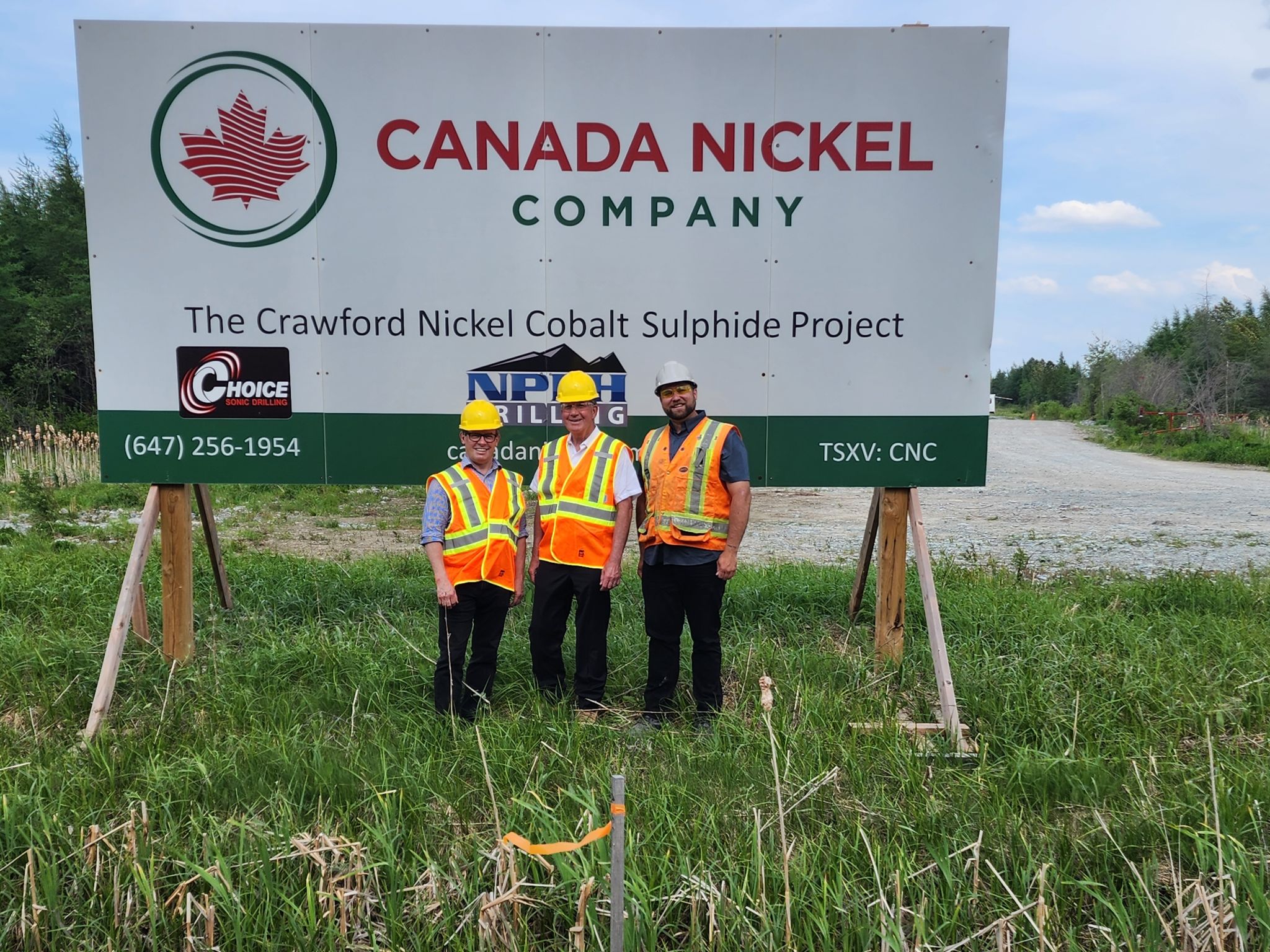Canada Nickel has announced a strategic partnership with Australia-based NetCarb to collaborate on the commercialisation of NetCarb’s carbon sequestration technology.
Unlike Canada Nickel’s IPT Carbonation process, which involves injecting a concentrated source of CO2 into tailings generated by the milling process for a brief period of time, and focuses solely on brucite, the NetCarb technology targets a more complete carbonation of serpentine minerals. The NetCarb process involves serpentinite activation followed by hydrometallurgical processing of ore through a CO2 activity swing reactor that effectively dissolves and re-precipitates magnesium as solid carbonate minerals for permanent carbon dioxide sequestration.
This technological advance could enhance the carbon sequestration potential of ultramafic mineralisation by more than tenfold, according to Canada Nickel.
At the company’s Crawford site, this advancement translates to a capacity for sequestering of over 500 Mt of carbon dioxide throughout the mine’s 40-plus-year lifespan. Furthermore, with over 20 regional ultramafic exploration properties which host rocks with similar carbon sequestration potential, Timmins could become a multi-gigatonne hub for mineral carbon sequestration, the company claims.
Canada Nickel and NetCarb are committed to working together to secure government funding to upscale this technology using material from Canada Nickel’s project portfolio. They aim to attract industrial partners across various sectors to continue to develop the NetZero Industrial Cluster in Timmins beyond the current Canada Nickel – NetZero Metals projects.
Other potential collaborators may include natural gas power companies, hydrogen producers, biomass industries and others. Through these cross-industry collaborations, there is significant potential to create a Zero-Carbon Industrial Cluster in NorthEast Ontario where various products and waste streams are converted into valuable by-product streams for use in a wide range of industries, the companies say.
On the same day as this announcement, Canada Nickel also confirmed that its Crawford nickel sulphide as one of five strategic critical minerals projects ready for near-term development as part of three transformational, nation-building projects.
Mark Selby, CEO of Canada Nickel, said, “We are excited by NetCarb’s novel technology, which represents the next generation of mineral-based carbon sequestration. While Canada Nickel’s proprietary IPT Carbonation process provides a carbon storage capacity facilitating as much as 1.5 Mt of annual CO2 storage capacity, the NetCarb process has the potential to increase the CO2 storage capacity of Crawfords tailings by a further magnitude to 10-15 Mt of annual carbon storage capacity, representing a magnitude scale leap forward and the third generation of mineral-based carbon sequestration.”
Dr Luke Keeney, NetCarb Managing Director and CEO, said: “We are excited to partner with Canada Nickel on advancing large-scale carbon mineralisation solutions. This collaboration brings together NetCarb’s breakthrough technology with Canada Nickel’s world-class resources to unlock the full potential of permanent carbon storage. Together, we are accelerating progress toward net zero by combining innovation, natural geology and scalable infrastructure. This partnership marks a significant step in our mission to deliver impactful, economically viable climate solutions on a global scale.”
A bankable feasibility study (BFS) from 2023 highlighted the potential use of trolley-assist trucking and the company’s proprietary IPT carbon capture and storage technology. This BFS, prepared by Ausenco Engineering Canada, displayed an after-tax NPV (8% discount) of $2.5 billion and an internal rate of return of 17.1%. This is based on a long-term nickel price of $21,000/t, a C$:$US of $0.76 and an oil price of $70/bbl. The study was based off proven and probable reserves of 3.8 Mt contained nickel from 1,700 Mt of ore grading 0.22% Ni, providing annual average nickel production of 38,000 t over a 41-year life, with production of 48,000 t/y of nickel, 800 t/y of cobalt, 13,000 oz of palladium and platinum, 1.6 Mt/y of iron and 76,000 t/y of chrome over 27-year peak period.
The post Canada Nickel looks to up carbon sequestration ante with NetCarb partnership appeared first on International Mining.

